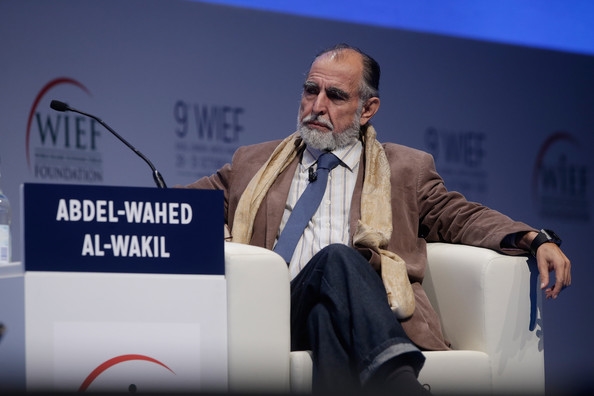An architect following tradition: Who is Abdel-Wahed El-Wakil?
80-year-old Abdel-Wahed El-Wakil, who aims to revive the traditional structure and style but makes use of modern elements while doing so, is considered one of the most important living Muslim architects.

Abdel-Wahed El-Wakil, one of the most important living names in the field of architecture, was born in Egypt in 1943. Vakil, who studied engineering at Ayn Shams University, then became affiliated with architecture at the academy and started teaching. What determined the direction of his life was his meeting with the famous Egyptian architect Hasan Fethi (1900-1989). Combining traditional and local styles with modern architecture, Fethi soon began to educate himself by taking Abdel-Wahed El-Wakil under his protection. Hasan Fethi was a name that attracted attention with the houses and mosques he built in rural Egypt.
Abdel-Wahed El-Wakil (born 7 August 1943) is an Egyptian architect who designed over 15 mosques in Saudi Arabia and is considered by many as the foremost contemporary authority in Islamic architecture. For designing in traditional styles, he is also a representative of New Classical Architecture.
IN THE OIL YEARS
Abdel-Wahed El-Wakil, who set out to put into practice what he learned from his teacher, received invitations from oil-rich countries for architectural projects in the 1970s. The biggest demand was coming from Saudi Arabia. After completing Halava House, the housing project that won him the first of the famous Aga Khan Architecture Award in his country, Egypt, in 1975, Vekil moved to Saudi Arabia and built works such as Kuba Masjid, Qiblatayn Masjid, Zulhuleyfe Mikat Mosque, which are well known to Muslims who go on pilgrimage and Umrah today. He built famous places. The Corniche Mosque, which he built on the Jeddah coast in 1989, earned Vekil his second Aga Khan Architecture Award.
OTTOMAN INFLUENCE
Traces of all architectural styles of Islamic history can be seen in the works of Abdel-Wahed El-Wakil. In addition to adapting the Mamluk architecture, which forms the basic texture of his country, Egypt, to his projects, Vekil also benefited from the Ottoman style. Inspired by the mosque he built for the Bin Laden family in Mecca and the Sokollu Mehmed Pasha Mosque in Istanbul, one of the most beautiful works of Mimar Sinan, Vekil gave lectures and made presentations at many universities in Turkey. Continuing his work despite his advanced age, Vekil today travels all over the Islamic world and continues to implement various projects.
---------------------------------
Abdel Wahed El-Wakil / The Benefits of Traditional Construction in Contemporary Architecture
https://www.archidatum.com/articles/abdel-wahed-el-wakil-the-benefits-of-traditional-construction-in-contemporary-architecture/
